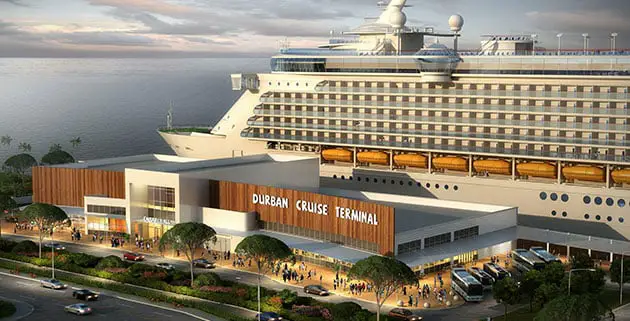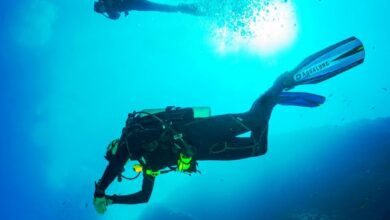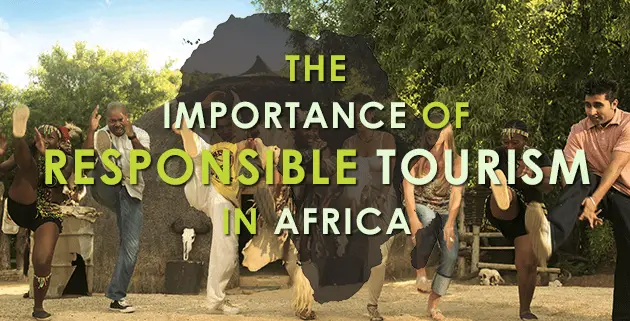How to Apply Responsible Tourism Practices
The benefits derived from responsible tourism practices are well documented, but in practice the implementation of these principles can be a nightmare for the uninitiated. In this article Des Langkilde looks at how Responsible Tourism practices can be implemented.
Being a responsible tourism product and service provider includes a lot more than merely conducting your own business in a responsible and ethical manner. Ethically based tourism is categorised into several terms, so before we get into this article, it’s probably best to look at a definition of each.
The table below has been extracted with acknowledgement to the Centre for Responsible Travel (CREST):
Responsible Tourism Trends and Statistics
According research conducted by CREST (1.84 MB file downloadable here), there is strong evidence that responsible tourism contributes to the bottom line of both businesses and destinations, and the opinions of numerous experts, backed by surveys and statistics are referred to. The ‘Business Case for Responsible Tourism’ shows that increasing numbers of businesses are creating environmental departments, adopting environmental and social good practices, seeking certification, and looking at ways to ‘green’ their supply chain.
In recent years, increasing attention has been focused on protecting and enhancing environmental and social sustainability within entire tourism destinations, and not simply within individual businesses. Tools for measuring and criteria for certifying ‘green’ destinations are gradually being developed, including by UNWTO, European Union, National Geographic’s Geotourism Program, Ethical Traveler, EarthCheck, Green Globe, and Sustainable Travel International’s STEP program. In November 2013, the Global Sustainable Tourism Council (GSTC) released its Criteria for Destinations, (GSTC-D) which represents a common understanding of what constitutes the minimum requirements for a sustainable destination.
Responsible Tourism in South Africa
The National Tourism Sector Strategy (NTSS) (1.34 MB file downloadable here) calls on the Department of Environmental Affairs and Tourism (DEAT) and other stakeholders to promote Sustainable and Responsible Tourism to make South Africa a tourism destination of choice. In March 2002, the DEAT published the National Responsible Tourism Development Guidelines for South Africa (115.18 KB file downloadable here), which was followed up in July 2002 with The Responsible Tourism Manual for South Africa (1.35 MB file downloadable here). Both documents aim to provide tourism businesses and community-based tourism enterprises (CBTEs) with information and opportunities that responsible tourism presents for improving business performance. Specific to South Africa, and in line with current international best practice, the authors of the latter document have collected a range of practical and cost-effective responsible actions available to tourism businesses and tourism associations. The manual refers to many useful sources of information and examples of best practice that can help to guide users’ implementation of responsible business activities.
Practical Application of Responsible Tourism
Clearly there are numerous exemplary tourism businesses in South Africa who have successfully implemented responsible tourism practices and initiatives. Hotel Verde (see pages 20-21 in the Tourism Tattler June 2013 edition here), Kwandwe Private Game Reserve (see pages 21-25 in the Tourism Tattler September 2013 edition here) and Mdumbi Backpackers (see pages 24-25 in the Tourism Tattler April 2014 edition here) are prime examples, as is Grootbos Private Nature Reserve (featured on pages 16-17 in this February 2015 edition of Tourism Tattler).
The Grootbos Foundation
I turned to the Grootbos Foundation to find 
I met with Leán Terblanche, whose areas of expertise lie in community capacity development, programme design, fundraising and public private partnerships. She holds a BA Humanities degree as well as a Post Graduate Diploma in Marketing Management obtained at the University of Stellenbosch. Along with her co-Director Julie Cheetham, who holds a B.Com in Economics from Port Elizabeth University and has 15 years’ corporate experience in financial services, consulting and manufacturing sectors, the executive team manage an equally qualified and experienced team of thirty staff members and 15 international volunteers.
Green Futures
Beginning my introductory tour, we head for the Green Futures Horticulture and Life Skills College, located within the Grootbos Private Nature Reserve, and meet Susan Lochner who is the Head of Green Futures. Namibian born and South African raised, Susan has been with the Grootbos Foundation for over 11 years. Educational training is provided to 8-12 unemployed young adults each year, with the aim of providing students the skills and confidence necessary to market themselves and become employable, while at the same time contributing to the conservation and promotion of the Cape Whale Coast region’s unique biodiversity.

The fully accredited (AGRISeta) course combines essential life skills, such as personal finance, business skills, computer literacy, driving and health education with knowledge of environmental and conservation issues, and skills of horticulture and landscaping.
On completion of their course, the students are awarded a nationally (SETA) accredited certificate in horticulture and are assisted in work placement. Successful students can also apply for a second year of tuition in (FGASA) field guiding level 1.
“Since inception, we have have graduated over 110 young people, and more than 90% of graduates have found employment on completion of the course. As from this year, we will also provide housekeeping training and certification in association with Lobster Inc” says Susan.
Two ongoing projects include Future Trees – a scientifically devised forest rehabilitation project, not merely a tree planting exercise – which has resulted in over 2 250 indigenous trees being planed since 2008, and the Alien Vegetation Project in partnership with the Agulhas Biodiversity Initiative, which employs 61 previously unemployed people from communities in the area, and had cleared over 5 684 hectares of land of exotic invasive trees species in 2013 alone.
Last, but not least in Susan’s Green Futures portfolio is Ecological Research, which is spearheaded by Grootbos Reserve’s Conservation Director and Foundation Board Member, Sean Privett. To date, more than 765 species of endemic fynbos have been documented growing here - six of which are newly discovered species, previously unknown to science.
Siyakhula
Moving on from Green Futures, Leán transports me across Grootbos Reserve’s private airstrip to the Siyakhula Organic Farm, which is also located within the reserve boundaries. The farm employs a full-time staff of six, and is run as a commercial enterprise to provide an income for Foundation projects – all vegetables, herbs, lettuces, fruit, eggs, honey and preserves produced at this farm are sold to the Grootbos lodges. Established in 2009, the farm initially provided skills development in organic agriculture, sustainable animal husbandry and beekeeping to members from the local community, particularly women. Today, beyond employment and food production, the farm functions as research and experimentation space for the Foundation’s larger food security projects, specifically the innovative ‘Green Box’ home garden system.

The Green Box concept uses urban container gardens, a revolutionary way to grow vegetables in dry areas with poor soil quality. Green Boxes save more than 60 % of water usage and nutrients are not washed from the soil, as with irrigation. Other benefits include up to 60% less fertilisers needed, faster growth rates, higher yields per square meter, no pesticides needed, no runoff of fertilisers or water due to a closed system, no negative environmental impact on biodiversity and the environment and no arable land needed due to soil-less cultivation.

Home gardening projects are implemented within the communities in which the Foundation works and use raised beds, Green Boxes and other forms of container gardening and permaculture to improve food security and dietary variety. In addition, the Food for Sport project – a 12 week training programme that combines sport, nutrition and food security –addresses the general low energy levels amongst youth, while teaching school children invaluable lessons in organic food production, nutrition and life skills.
Candle making is an enterprise in which Siyakhula excels. With approximately five kilograms of residual wax disposed of by the two Grootbos lodges daily, this project is able to produce 100 to 150 candles, which they can then sell back to the lodges. Each candle produced consists of 50% recycled wax collected from the lodges and 50% new wax, purchased by the Siyakhula programme from a low-cost, wholesale provider.
Another promising enterprise is Honey Production. This project has grown from farming with 30 hives to 75, and currently approximately one tonne of honey is produced at Grootbos each year. A new Siyakhula initiative aims to increase honey production to 3 tonnes in the next financial year, and then to develop a range of personal products (e.g. skincare, bath products) containing honey and beeswax. This will employ and develop even more of the local unemployed community.
Still in the experimental phase, Oyster mushrooms, highly prized as a culinary delicacy, are grown by students and sold to the kitchen at the Grootbos Lodges at a profit. The eventual aim of this initiative is to increase production and turn the project into a commercial enterprise supplying a number of clients and employing local people. The Foundation is currently seeking funding to erect an on-site greenhouse dedicated to this promising and potentially highly profitable enterprise.
And finally, in partnership with ABSA bank, the ‘Careers, Employability And Enterprise’ Project provides skills training workshops to empower an estimated 900 young people per year to become more employable, self-confident and positive about life. A select group of budding young entrepreneurs from the project go on to complete a business development programme focused on small enterprises and entrepreneurship. This programme strives to significantly improve students’ lives in areas such as personal agency, communication, teamwork, financial literacy and employment skills and hopes to strengthen their sense of citizenship.
Football Foundation
Last, but by no means least of Grootbos Foundations’ responsible tourism initiatives, is their subsidiary Football Foundation of South Africa (FFSA), launched in 2008 with the dual aims of achieving greater social integration in the Gansbaai region and educating and empowering youth, using sports as a vehicle for change. This multiple award winning programme launched in 2008, with the construction of a multipurpose sports facility, including a showpiece, a full-size, third generation (3G) artificial soccer pitch (sponsored by the English Premier League), is situated at the cusp of traditionally segregated black, white and coloured areas of Gansbaai.

The Football Foundation runs football, netball, hockey and athletics training sessions in Gansbaai, Stanford, Hermanus and Hout Bay, which engage approximately 2000 youths each week. In addition to these sessions, FFSA also run programmes centered on HIV education, female empowerment, environmental education, nutrition, enterprise development and integration. With this flagship programme, the Foundation aims to uplift communities by empowering individuals through sports programmes, including accredited skills training and leadership opportunities, and simultainously promote education, health, social integration and participation through sports.
Consulting Services
The Grootbos Foundation advises and consults to a number of organisations on their Corporate Social Investment initiatives by devising strategies, practices and opportunities around corporate social responsibility and experiential learning to ensure that donors derive maximum value from any partnerships created. The team focuses on designing CSI practices that align with an organisation’s commercial, corporate social investment and employee engagement objectives, whilst delivering on the needs and expectations of target beneficiaries.
The Foundation consults, engages with and profiles target communities in combination with intensive client consultation to deliver aligned, priority-driven and cost-effective development interventions, with high social returns and targeted sector partnerships. Their collaborative approach strives to be a positive model of how Public Private Partnership (PPP) can increase productivity, legitimacy and secure long-term success. Community ownership through transparent, legitimate and effective cooperatives is the long-term goal.
Conclusion
If I were a lodge owner / general manager, tourist attraction or destination manager looking to apply responsible tourism principles into my business operations, I’d certainly look at tapping into the Grootbos Foundation’s expertise for assistance.
As Leán commented when parting company at the end of my guided tour: “We have perfected our responsible tourism initiatives over the past 12 years and learned a lot along the way. Our methods are tried and tested, and the same principles can be applied to integrate within any environment and community, not just within South Africa but anywhere in Africa, or the World for that matter. Our established supplier contacts and strategic partnerships have taken years to develop and we can even make our NGO fundraising facility available to travel trade partners who want to implement their own responsible tourism initiatives.”
In conclusion, I leave you with some positive statements from Tourism Minister Derek Hanekom, while commenting on the World Responsible Tourism Awards held during WTM-London in November last year (read more here).
“I believe we can do more to educate and activate travel consumers to support responsible tourism. This will accelerate the implementation of responsible tourism principles by destination operators even further,” Hanekom said, while adding that South Africa will look at ways to incentivise the retrofitting of tourism attractions and accommodation facilities.
We await the Ministers action on the last statement with bated breath.
For more information, contact the Grootbos Foundation on +27 (0)28 384 8048 or email [email protected] or visit the Grootbos Private Nature Reserve at www.grootbos.com








